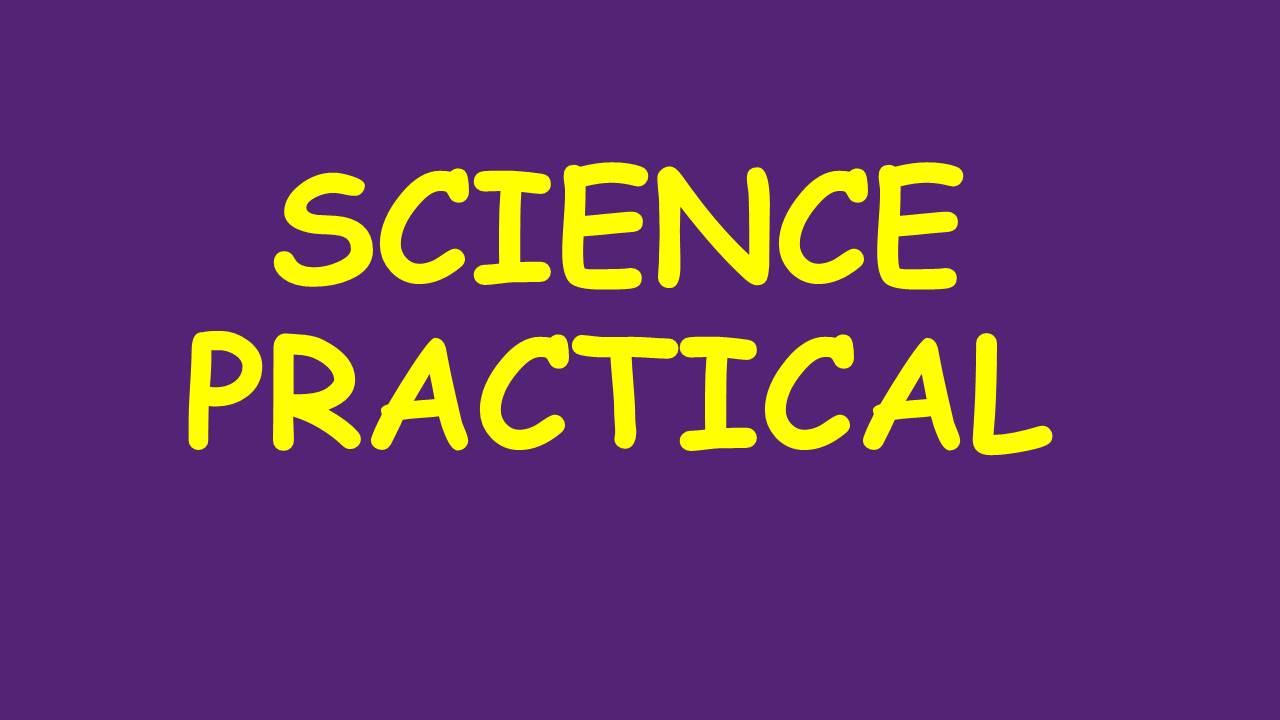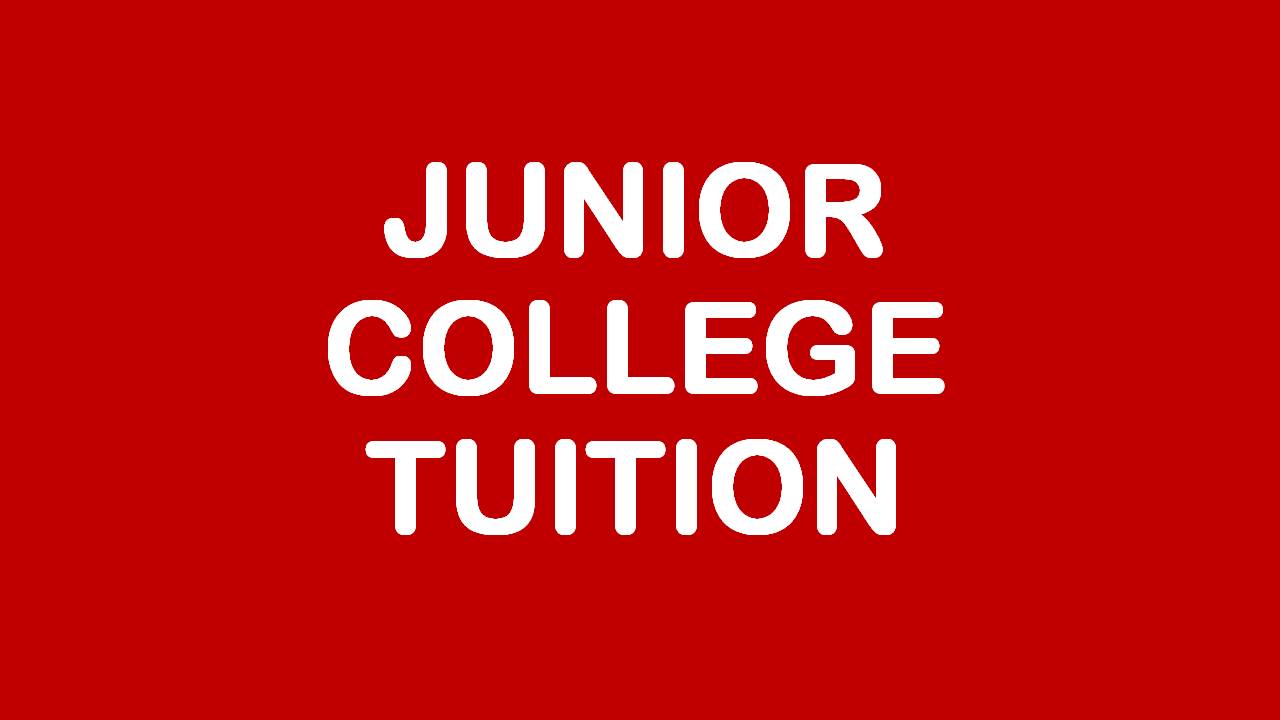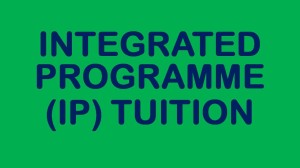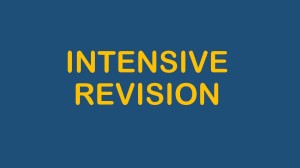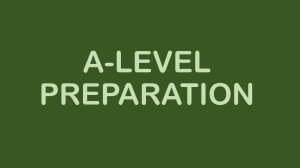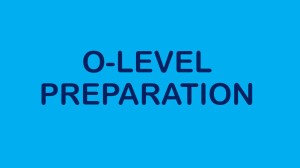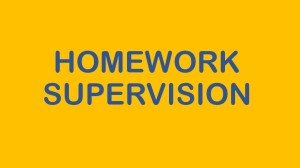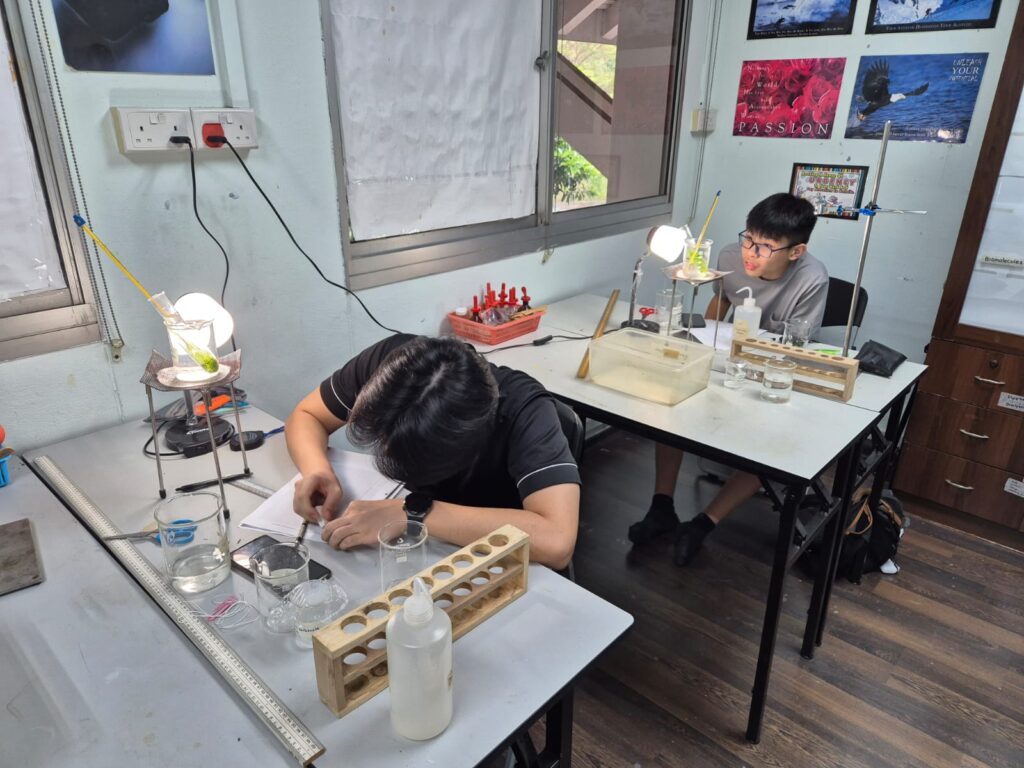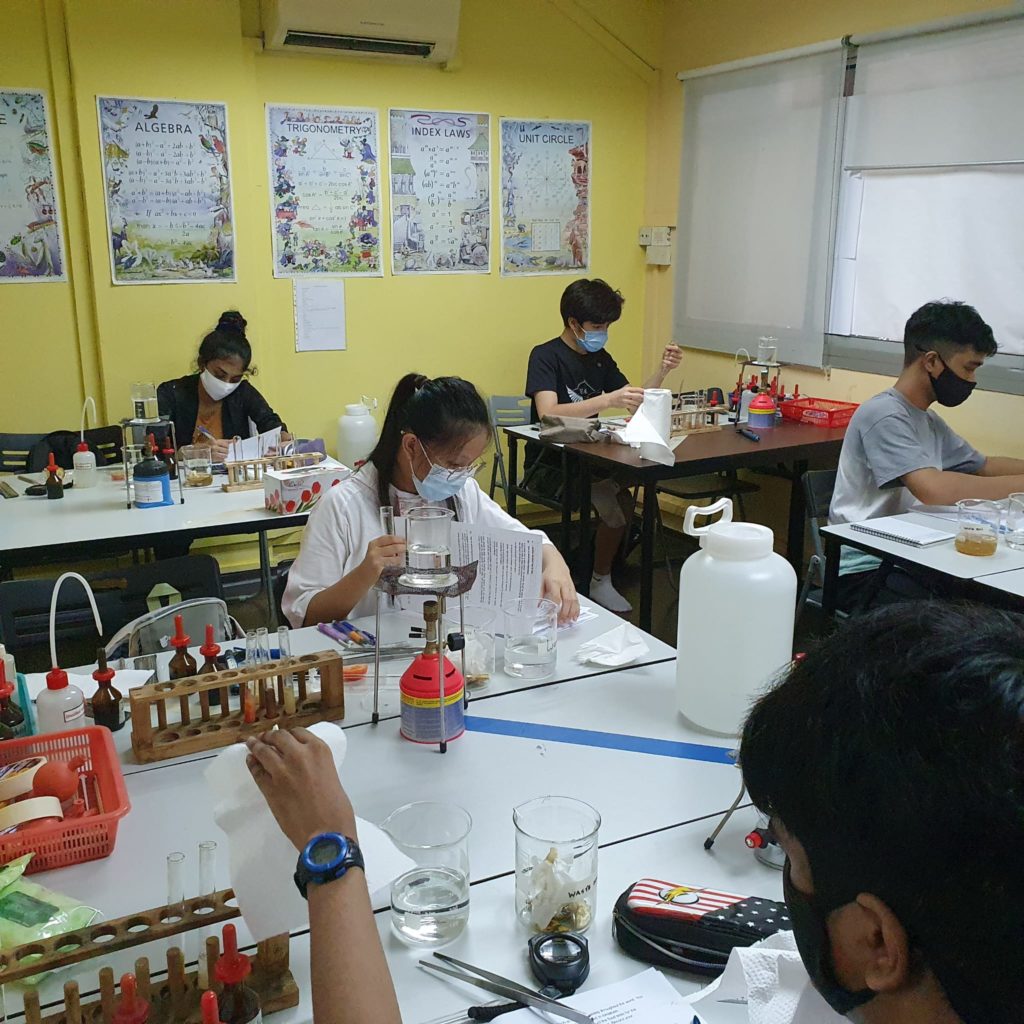Today, both my P5 and P3 daughters told me that some of their classmates were in tears after their Math SA1 exams.
When children cry during or after an exam, it is not simply because the paper is too difficult. Personally I have encountered many difficult test and exam papers in my life, but I have not cried even once because of them. Nope, I don’t think it was because I was a boy; I can’t even imagine my daughters crying because of exams. If they do, then I know I’ve failed as a parent as far as their psychological development is concerned.
Yes, it’s about expectations, or setting them too high, and warning about consequences should the targets not be achieved. Looking back, my parents hardly ever asked me about my school work, and when I told them I would do badly in a paper, they would just comfort me and at worst joined me in my sadness! No scoldings, no cancellation of rewards, not a single kind of punishment or threat.
Yes, I do expect my daughters to do well in their studies, but I do not tie the outcome to rewards or punishment. I give them rewards because I love them, not necessarily because they deserve those rewards. I punish them for wrongdoings, not for performances in tests or exams.
Maybe those children cried because they have too high an expectation of themselves. Then it is their parents’ duty to help them manage their expectations (if the parents can manage their own expectations of course). Or maybe some children just cry easily at the slightest encounter with a difficulty or setback? Whatever the case, children are children and I wouldn’t hold THEM responsible for anything.
Rgds,
Ilyasa
Recommended Books for ‘A’ Level Physics & Math
MOCK EXAMS FOR SCIENCE PRACTICAL
JC Math
For students to master each topic in JC Math, I would recommend the following series of books:
1. Power Maths H1 & H2
Publisher: Tavern learning Centre; Author: P K Lim
It comes in four Volumes. Volume 1 provides notes and examples for Sequences & Series, Functions & Graphs and Calculus. Volume 2 provides notes and examples for Vectors, Complex Numbers and Statistics. Volumes 3 and 4 provide a variety of difficult questions and worked solutions for all six topics.
How to use these books?
Use Volumes 1 and 2 to learn the theories of each topic and analyse the examples to understand and remember how different types of problems are solved.
Use Volumes 3 and 4 to either learn new techniques (if you don’t have much time left to study for exams) or to do self-practice. For the latter, cover the solutions when you attempt to answer the questions and after that mark your own solutions by comparing them with the model answers. If your answers are incorrect, seek to understand where, how and why you got them wrong.
If you often find yourself not understanding some parts of the model answers, then, yes, you’d probably need to consult a tutor. But you can first try asking your school teachers or friends first.
JC Physics
For students to master each topic in JC Physics, I would recommend the following series of books:
1. Sears & Zemansky’s College Physics
Publisher: Pearson International Edition; Authors: Hugh D. Young, Robert M. Geller
This is a comprehensive reference book for A-level Physics. It is very informative but some of the worked examples are difficult to understand. But it is a must-have book for those of you who are very passionate about physics.
2. College Physics
Publisher: Brooks/Cole Cengage Learning; Author: Vuille, Serway
This book has worked examples that are easier to understand. It is also written in a simpler style which makes learning easier. A good reference book for JC Physics students to have.
3. Physics A Level Complete Yearly Solutions
Publisher: Themis Publishing; Authors: Thomas Bond, Chris Hughes
This book is good because of the examiners’ reports included in it. Students should read the examiners’ comments to know what is expected of them in answering A-Level Physics questions.
4. GCE ‘A’ Level Physics (Worked Solutions)(Classified Topic by Topic)
Publisher: Dyna Publisher Pte Ltd; Author: Phang Yu Hon
The answers to past A-Level questions provided in this book is generally better than those in other books; more comprehensive and more accurate. It is also excellent for providing answers to selected H3 Physics questions.
5. Physics A Level Challenging Drill Questions for H1. H2 (questions from top JCs)
Publisher: Cosmic Services; Authors: Thomas Bond, Chris Hughes
If students complete most of the questions in this book and mark their answers using the separate answer book, they will almost certainly get an ‘A’ for their A-level Physics.
6. Longman Advanced Level Physics
Publisher: Pearson Longman South Asia Pte Ltd; Author: Loo Kwok Wai
This book is actually a collection of A-Level Physics notes. It is good for beginning to intermediate level physics students as its many worked examples are gradual and easy to understand. Ideal for quick revision. Not comprehensive enough to be used as a reference text.
TUITION CLASSES:
_______________________________________________________________
EDUCATIONAL SERVICES:
______________________________________________________________
By EX-MOE TEACHERS & EXPERIENCED TUTORS
@ BLK 644, BUKIT BATOK CENTRAL, #01-68. S(650644).
CALL 65694897 OR SMS 98530744 OR 97860411.
Recommended Books for PSLE Math & Science
PSLE Math
For students to master each topic in PSLE Math, I would recommend the following series of books, categorised into different difficulty levels:
High Achievers
1. Challenging Maths Made Easy: A step-by-step guide to the non-routine
Publisher: Marshall Cavendish Education; Author: Ammiel Wan Chee Hong
This is an old book first published in 2006 and as far as I know, it was the first attempt to give some kind of learning structure to PSLE Math problem sums. Instead of introducing problems by topics such as Fractions or Ratio, it divides PSLE Math problems into mathematical concepts such as Remainder Concept, Equal Concept etc. It has fully worked out solutions often showing both the Models method and Units method of solving a particular problem. However, it’s only for P6 students and the need for the same kind of guidance for the lower primary levels probably led to the creation of the Onsponge series below.
2. Conquer Problem Sums (Thinking Math@Onsponge)
Publisher: onSponge Pte Ltd; Authors: Ammiel Wan, Corine Quek, Chris Rogers.
The Onsponge set of books also teaches mathematical concepts such as the Remainder Concept, but organises its chapters by topics such as Whole Numbers, Fractions etc, in line with the primary math syllabus so that it would be easier for teachers and parents to use. The advantage is that it is more comprehensive than (1) as it covers all the math topics as well as all the primary levels. However, it has fully worked out solutions for some questions only, and if you want to focus on mastering only problem sums, then (1) would be better for you to complete.
Mid Achievers
1. Primary Six Mathematics Tutor
Publisher: Casco Publications Pte Ltd; Author: Lee-Ann Goh
Typical of the Mathematics Tutor series of books, this book has concise notes and many worked examples, and provides questions for all levels, from very easy to very difficult. It also has fully worked out solutions which students and parents can use for checking, marking and even learning.
2. Problem-Solving Processes in Mathematics (New Syllabus)
Publisher: Educational Publishing House Pte Ltd; Author: Fabian Ng
I use this book for my own children as a basic, comprehensive training ground for problem-solving. It provides a lot of questions in increasing difficulty. However, some of the methods used in its worked examples are either inefficient or hard to understand, and another downside of this book is that most of the answers provided at the back of the book are not full solutions.
Gradual Achievers
1. Diagnostic Practice in Maths
Publisher: Educational Publishing House Pte Ltd; Author: Peter Lim
2. PSLE Maths Drills
Publisher: Educational Publishing House Pte Ltd; Author: Sng Wei Hao
PSLE SCIENCE
For students to master each topic in PSLE Science, I would recommend the following series of books:
1. Science Practice (Primary 5 &6)
Publisher: Marshall Cavendish Education; Author: Winnie Peh
2.PSLE Ultimate Science Guide
Publisher: Educational Publishing House Pte Ltd; Authors: Low Wai Cheng, Leong May Kuen
_______________________________________
TUITION CLASSES:
_______________________________________________________________
EDUCATIONAL SERVICES:
______________________________________________________________
By EX-MOE TEACHERS & EXPERIENCED TUTORS
@ BLK 644, BUKIT BATOK CENTRAL, #01-68. S(650644).
CALL 65694897 OR SMS 98530744 OR 97860411.
Recommended Books for ‘O’ Level Math, Physics & Chemistry
NEW!
O-LEVEL PURE CHEMISTRY HANDS-ON PRACTICAL CRASH COURSE
O-LEVEL PURE PHYSICS HANDS-ON PRACTICAL CRASH COURSE
O-LEVEL PURE BIOLOGY HANDS-ON PRACTICAL CRASH COURSE
MOCK EXAMS FOR SCIENCE PRACTICAL (Sep & Oct)
SCIENCE (CHEMISTRY) HANDS-ON PRACTICAL CRASH COURSE
SCIENCE (PHYSICS) HANDS-ON PRACTICAL CRASH COURSE
SCIENCE (BIOLOGY) HANDS-ON PRACTICAL CRASH COURSE
MOCK EXAMS FOR SCIENCE PRACTICAL (Sep & Oct)
Singapore Learner @ Bukit Batok
Blk 644, Bukit Batok Central, #01-68. S(650644).
Tel: +(65) 6569 4897, +(65) 88765498 (WHATAPPS) http://wa.link/w0xxk2
Email: principal@singaporelearner.com
If you wish to visit us, kindly call or sms first. Thank you.
‘O’-Level Elementary Math
For students to master each topic in ‘O’-Level Elementary Math, I would recommend the following series of books:
1. ‘O’ Level Elementary Mathematics Companion
Publisher: Casco Publications Pte Ltd; Author: Lee-Ann Goh
It comes in two volumes. Book 1 provides notes, examples and practice questions for Arithmetic, Algebra, Coordinate Geometry and Graphs. Book 2 provides notes, examples and practice questions for Geometry, Trigonometry, Sets, Matrices, Vectors and Statistics. Each book comes with fully worked-out solutions to all the practice questions.
How to use these books?
Use the two books to learn or revise the theories of each topic and analyse the examples to understand and remember how different types of problems are solved.
Then attempt to answer as many questions as you can in the Revision Exercises provided and after that, mark your own solutions by comparing them with the worked solutions. If your answers are incorrect, seek to understand where, how and why you got them wrong.
If you often find yourself not understanding some parts of the worked solutions, then, yes, you’d probably need to consult a tutor. But you can first try asking your school teachers or friends first.
If you have mastered most of the topics in ‘O’-Level and you need practice papers, then I would recommend that you complete the papers in the following book:
2. G.C.E. ‘O’ Level Mathematics Paper 1 and Paper 2
Publisher: Casco Publications Pte Ltd; Author: Lee-Ann Goh
It has 10 ‘Trial Exam’ papers, with fully worked-out solutions for each paper. You should attempt each paper in the time allocated (2hrs for Paper 1 and 2.5hrs for Paper 2). Then mark your own solutions and reflect on your errors and learn from them.
3. Pass With Distinction, Elementary Mathematics (By Topic) with Solutions
Publisher: Shinglee Publishers Pte Ltd; Author: Teh Keng Seng, Loh Cheng Yee
‘O’-Level Additional Mathematics
For students to master each topic in A. Math, I would recommend the following series of books:
- Pass With Distinction, Additional Mathematics (By Topic) with Solutions
Publisher: Shinglee Publishers Pte Ltd; Author: L. K. Lee
- O–Level Additional Mathematics Revision Guide 3 and 4
Publisher: Pearson Longman; Author: Aven Choo
How to use these books?
Use the two books to learn or revise the theories of each topic and analyse the examples to understand and remember how different types of problems are solved.
Then attempt to answer as many questions as you can in the Practice Exercises provided and after that, mark your own answers. If your answers are incorrect, seek to understand where, how and why you got them wrong.
If you have mastered most of the topics and you need practice papers, then I would recommend that you complete the papers in the following book:
- ‘O’ Level Additional Mathematics Revision Guide Paper 1 and 2
Publisher: Dolphin Publications
It has 14 challenging ’Revision Exam’ papers, with fully worked-out solutions for each paper. You should attempt each paper in the time allocated (2hrs for Paper 1 and 2.5hrs for Paper 2). Then mark your own solutions and reflect on your errors and learn from them.
‘O’ Level Chemistry
For students to master each topic in ‘O’-Level Chemistry, I would recommend the following series of books:
- Understanding Chemistry ‘O’ Level
Publisher: GLM Pte Ltd; Author: Li Geok Jin
- Pass With Distinction: Chemistry (By Topic)
Publisher: Shinglee Publications; Author: Sean Chua
- ‘O’ Level Chemistry Workout (Structured and Free-Response Questions)
Publisher: Pearson Longman; Author: Lim Eng Wah, JGR Briggs
- Effective Guide to ‘O’ ‘Level Chemistry (2nd Edition)
Publisher: Pearson Longman; Author: Lim Eng Wah
‘O’ Level Physics
For students to master each topic in ‘O’-Level Physics, I would recommend the following series of books:
- ‘O’ Level Challenging Drill Questions Physics
Publisher: Cosmic Services; Authors/Compilers: Thomas Bond, Chris Hughes
- Pass With Distinction: Physics (By Topic)
Publisher: Shinglee Publications; Author: Tan Kim Seng
- ‘O’ Level Physics Workout (Structured and Free-Response Questions)
Publisher: Pearson Longman; Author: Gabriel Lionel Morris
- 1001 Physics MCQs for ‘O’ Level
Publisher: Pearson Longman; Author: Tan Peng Yeon
O-LEVEL PHYSICS PRACTICAL
O-LEVEL CHEMISTRY PRACTICAL
O-LEVEL BIOLOGY PRACTICAL
O-LEVEL SCIENCE (PHYSICS) PRACTICAL
O-LEVEL SCIENCE (CHEMISTRY) PRACTICAL
O-LEVEL SCIENCE (BIOLOGY) PRACTICAL
TUITION CLASSES:
EDUCATIONAL SERVICES:
By EX-MOE TEACHERS & EXPERIENCED TUTORS
@ BLK 644, BUKIT BATOK CENTRAL, #01-68. S(650644).
CALL 65694897.
P6 MATH & SCIENCE, June INTENSIVE REVISION For PSLE 2013
For our latest timetable, click here => 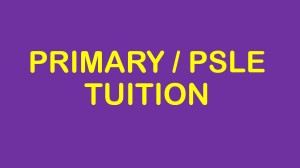
===============================================================
ORIGINAL POST(OUTDATED):
For enquires, pls call 97860411, or visit www.conceptlearning.sg
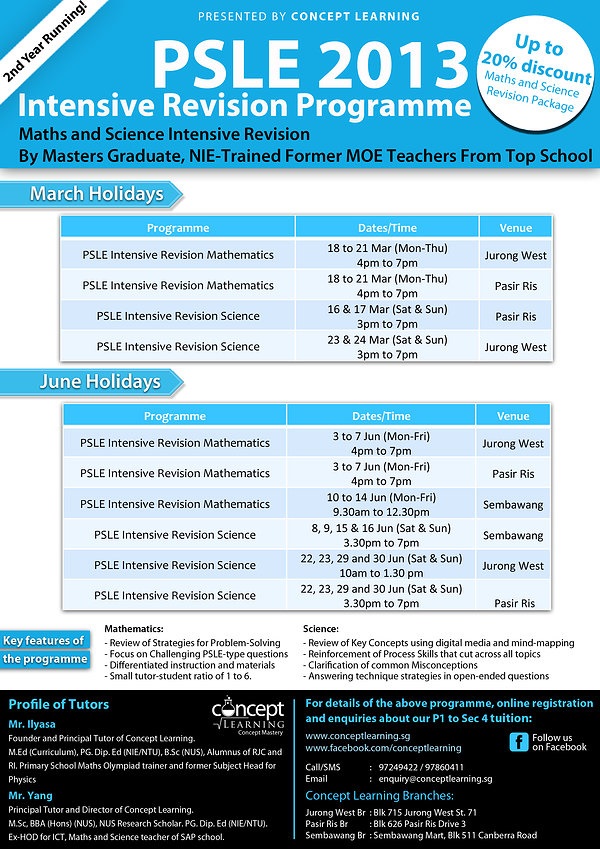
To register for classes at Concept Learning, click here.
The PSLE Intensive Revision in Mathematics is a 4/5-day intensive revision programme conducted during the upcoming March and June school holidays to prepare P6 pupils for the 2013 PSLE Mathematics Examination.
The objectives of the programme are as follows:
- Review of problem-solving strategies to conquer Challenging PSLE maths problems using the Conceptual Approach such as Advance Model Drawing, Remainder Concept (Branching), Repeated Identity, Equal Concept, Unchanged Total, Proportions Concept and Constant Difference. The strategies cuts across the major topics in PSLE such as fractions, ratio, percentage, decimals, measurement and numbers.
- Review and the reinforcement of key topics such as Percentage, Ratio, Fractions, Decimals, Algebra, Geometry, Area and Perimeter and Volume.
A former MOE school teacher, Mr Ilyasa has been coaching students in ‘A’ Level (H2/H1) Physics and (H2/H1) Mathematics for more than 7 years, as well as ‘O’ Level Physics, Additional Math, Math and PSLE Math for more than 10 years. An alumnus of RI and RJC, Mr Ilyasa holds a Bachelor of Science degree with Merit from the National University of Singapore, a Postgraduate Diploma in Education with Credit from the National Institute of Education, Singapore, and a Master of Education (Curriculum & Teaching) degree also from the NIE, Singapore.
An important PSLE math concept to understand (Part 1)
Let me share with you a difficult concept normally tested in P5 or P6 Math. I’m not sure if it has a name. It makes use of the concept of difference between two values but it’s not the same as the Constant Difference concept, which refers to the idea of a particular difference between two values being the same despite making changes to other quantities. The concept that I’m about to introduce actually makes use of TWO differences, the difference between individual values and the difference in their total values. Quite a number of tough P6 qns are actually testing whether students know that there is a relationship between the difference between two individual values and the difference in their total values.
I think this is best explained without any unknown values. Let’s say a pencil costs $1 and a pen costs $1.50. The difference in their values is $0.50 right? Let’s call this the Individual Difference. Let’s say you purchase 10 of each, costing a total of $10 and $15 respectively. The difference in their total values is $5 right? Let’s call this the Total Difference. Is there a relationship between the Individual Difference (ID) and the Total Difference (TD)? Yes. Notice that if TD is divided by ID (5 / 0.50), what you’ll get is 10, which is the number of each item you purchased. If this is easy for you to understand, it is likely because all values are known and you were working forwards to find the total difference, and not working backwards to find the number of each item bought.
Let me now show you how a typical P6 question looks like:
John bought an equal number of pens and pencils. Each pencil costs 50 cents less than a pen. John paid a total of $5 more for the pens than for the pencils. How many pencils did John buy? (using TD/ID, the answer is 10. but notice how intriguing the question has become?)
Please also realise that the concepts of ratio, decimals, fractions and percentages are all related and interchangeable. So let’s make the above question harder:
John bought some pens and pencils. The ratio of the number of pencils he bought to the number of pens is 1:1. Each pencil costs $1 and each pen costs 50% more than a pencil. John paid a total of $5 less for the pencils than for the pens. What is the total number of pens and pencils that John bought? (answer: 20)
Another way of looking at the above problem is to see that since each pencil costs 50 cents less than each pen, it must have taken 10 of them to be a total of $5 less than the SAME quantity of pens.
Rgds,
Ilyasa,
Founder, Singapore Learner; Director, Concept Learning Pte Ltd
Related links:
(1) Challenging PSLE Math Programme for Medium to High Ability Students
(2) P6 MATH & SCIENCE, March & June INTENSIVE REVISION For PSLE 2013
===============================================================
For our latest timetable, click here => 
ALGEBRA June Holiday Workshop (Sec 2 Level)
For our latest timetable, click here => 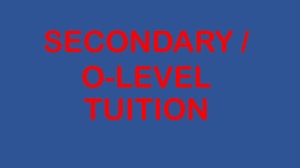
===============================================================
ORIGINAL POST(OUTDATED):
TO REGISTER, click here. YOU CAN ALSO SMS OR CALL 97860411
Level/Subject: Sec 2 Algebra
Days: 5th to 6th June (total 6 hrs)
Time: 9.00 am to 12.00 pm
Location: Blk 627 Bukit Batok Central #07-640
Target Group: Suitable for: (1) Sec 2 to Sec 4 students who wish to revise and master intermediate-level algebra; (2) P6 students who wish to learn more about algebra to enhance their PSLE Math problem-solving skills; (3) Sec 1 students who wish to have a headstart in algebra.
Topics: (1) Expansion and factorisation of Algebraic expressions; (2) Simplifying and solving Algebraic Fractions and equations; (3) Solving Simultaneous Linear Equations.
Focus: Conceptual Understanding; Effective Problem-Solving
Format: Lecture + Worksheets + Discussions
Status: Registration has started. TO REGISTER, click here. YOU CAN ALSO SMS OR CALL 97860411
Fees: $120 ($100 if you register by 17 May)
Class Size: 2 to 6 students.
Tutor(s):
Mr Ilyasa; M.Ed (NIE), PGDE (NIE), BSc (NUS), Ex-RI/RJC; ex-sch teacher, full-time tutor of PSLE, O and A Level Math and Physics. (h/p: 97860411)
TO REGISTER, click here. YOU CAN ALSO SMS OR CALL 97860411
ALGEBRA June Holiday Workshop (Sec Level)
For our latest timetable, click here => 
===============================================================
ORIGINAL POST(OUTDATED):
TO REGISTER, click here. YOU CAN ALSO SMS OR CALL 97860411
Level/Subject: Sec 1 Algebra
Days: 3rd to 4th June (total 6 hrs)
Time: 9.00 am to 12.00 pm
Location: Blk 627 Bukit Batok Central #07-640
Target Group: Suitable for: (1) Sec 1 to Sec 4 students who wish to revise and master basic algebra; (2) P6 students who wish to learn more about algebra to enhance their PSLE Math problem-solving skills.
Topics: (1) Addition, subtraction, multiplication and division of Algebraic expressions; (2) Simplifying and factorising Algebraic expressions; (3) Solving linear and fractional Algebraic equations.
Focus: Conceptual Understanding
Format: Lecture + Worksheets + Discussions
Status: Registration has started. TO REGISTER, click here. YOU CAN ALSO SMS OR CALL 97860411
Fees: $120 ($100 if you register by 17 May)
Class Size: 2 to 6 students.
Tutor(s):
Mr Ilyasa; M.Ed (NIE), PGDE (NIE), BSc (NUS), Ex-RI/RJC; ex-sch teacher, full-time tutor of PSLE, O and A Level Math and Physics. (h/p: 97860411)
TO REGISTER, click here. YOU CAN ALSO SMS OR CALL 97860411
Yay, my Sec 4 student topped her class in Math. : )
Congrats to Ameerah from Clementi Town Sec who obtained 24/25 for her most recent Math test. It’s my fourth good news in two weeks (before this, Daniel Lam from BPGHS topped his class in A Math, Peng Wee from CTSS did the same in Physics and Hanaa from Hillgrove Sec missed the top spot in her class for Math by just one mark).
Over the years, many of my tutees topped their classes, in Math and/or Physics. Is there a secret to their accomplishments? No, and Yes. It’s not a secret that they all worked hard and smart. The secret is, and I intend to keep it as a trade secret, is what I tell them in class, at the crucial moments. The power of words, truly amazing.
In case you don’t believe, let me tell you of another student, Victoria, formerly from Nan Hua High, now in RI year 6. Her math results were very inconsistent, but she obtained A1 for both in the O-levels. She didn’t attend my lessons in the last month before the O-levels because I kind of scolded her badly, and she decided to study by herself. When she called to inform me of her O-level results, I asked her what caused the change, and she said, “It’s something you said.”
The lesson for teachers and tutors is, be careful of what you say to your students. I’ve made mistakes in this area before, in my first few years of teaching. If you are a parent, please be even more careful of what you say to your children. Words have power beyond our comprehension.
Rgds,
Ilyasa
Challenging PSLE Math Programme for Medium to High Ability Students
For our latest timetable, click here => 
===============================================================
ORIGINAL POST(OUTDATED):
After conducting the PSLE Math Intensive Revision workshop during the recent March holidays, where I taught a wonderful group of students some of the more difficult concepts found in PSLE Math as well as metacognitive approaches to problem solving, some parents have asked me to continue conducting a weekly challenging PSLE math programme, as the next PSLE Math Intensive Revision in June is too far away.
For this challenging math program, I will be teaching students the more difficult concepts necessary to excel in PSLE Math, as well as the strategies and heuristics commonly employed to solve them. I will also be exposing students to P6 Math Olympiad questions as some of the most difficult PSLE Math questions are modified Primary Math Olympiad questions. Details of the weekly programme are as follows:
Level/Subject: PSLE Challenging Math
Day/Time: Every Saturday, 9.00 am to 10.30 am ( 1.5 hrs)
Location: Blk 627 Bukit Batok Central #07-640
Focus: Difficult Concepts, Strategies, Heuristics, Olympiad
Fees: $150 for every four sessions.
Class Size: 2 to 8 students.
Tutor: Mr Ilyasa; M.Ed (NIE), PGDE (NIE), BSc (NUS), Ex-RI/RJC; ex-sch teacher, full-time tutor of PSLE, O and A Level Math and Physics. (h/p: 97860411)
A former secondary school Physics teacher, Mr Ilyasa has been coaching students in ‘A’ Level (H2/H1) Physics and (H2/H1) Mathematics for more than 7 years, as well as ‘O’ Level Physics, Additional Math, Math and PSLE Math for more than 10 years. An alumnus of RI and RJC, Mr Ilyasa holds a Bachelor of Science degree with Merit from the National University of Singapore, a Postgraduate Diploma in Education with Credit from the National Institute of Education, Singapore, and a Master of Education (Curriculum & Teaching) degree also from the NIE, Singapore.
To register, kindly call or send an sms to 97860411.
